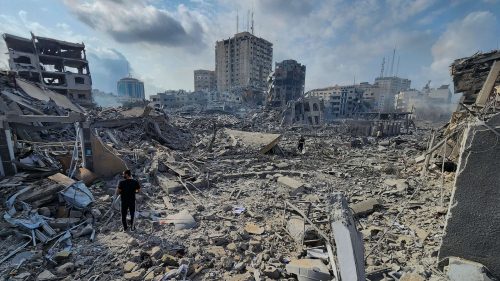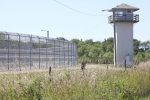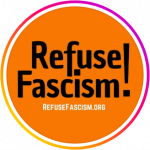Nathan Robinson explains why the pundits and far-right apologists are not funny — they’re horrifying.
The breaking point for him was how these horrible people, like Bret Stephens and Bari Weiss and Matt Yglesias and Ben Shapiro, are now making excuses for a genocidal regime that is shooting and starving children in a campaign of extermination. I imagine that in the 1930s people would laugh at the Nazi monsters who were comically buffoonish, but they ended up tearing a continent apart, engaging the world in a destructive war, and marching millions of innocents to their death. Wake up, that’s what the right wing is gearing up to do right now.









